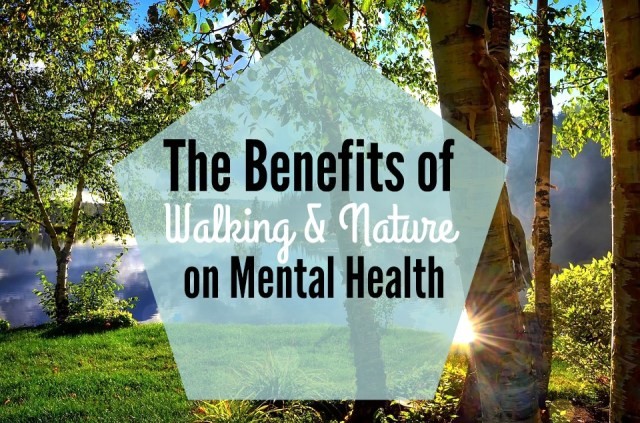In the midst of modern life, with its constant digital notifications, crowded schedules, and unrelenting pace, moments of quiet have become rare luxuries. Yet stepping outside and taking a simple walk in nature has an almost immediate effect on calming the mind. It may seem too easy, almost too obvious, but research and lived experience alike suggest that immersing ourselves in natural environments offers powerful benefits for mental health. Nature walks provide a form of therapy that is accessible, affordable, and profoundly restorative, offering balance in a world where overstimulation has become the norm.
One of the most striking effects of walking in nature is its ability to reduce stress. Natural settings activate the parasympathetic nervous system, which helps the body shift out of fight-or-flight mode and into a state of relaxation. The rustling of leaves, the sound of running water, or the rhythmic crunch of gravel underfoot can slow breathing and lower heart rate. Unlike urban environments, which bombard the senses with noise, traffic, and advertising, nature provides a softer backdrop that allows the mind to unclench. This reduction in stress is not just about feeling better in the moment; it has ripple effects that improve mood, focus, and resilience long after the walk is over.
Nature walks also offer an antidote to mental fatigue. Many people spend their days glued to screens, juggling tasks that demand constant attention. This kind of sustained focus can be draining, leaving the brain feeling cluttered and foggy. In contrast, walking through a park, forest, or even a tree-lined neighborhood engages a different kind of attention—one that is effortless and restorative. Psychologists call this “soft fascination,” where the mind is gently engaged by the beauty of the environment without requiring effortful concentration. Looking at the patterns of branches against the sky or watching birds move between trees allows mental resources to replenish naturally.
The benefits extend beyond stress relief and clarity. Spending time in green spaces has been linked to lower rates of anxiety and depression. Part of this is physiological, as exposure to natural light helps regulate circadian rhythms and boost serotonin production. But there is also a psychological dimension: being in nature provides perspective. The vastness of a forest or the stillness of a lake creates a sense of scale that can make personal worries feel smaller and more manageable. This shift in outlook often leads to feelings of gratitude and connectedness, emotions that are protective against mental health challenges.
Walking itself adds another layer of benefit. Movement releases endorphins, the brain’s natural mood enhancers, while also reducing cortisol, the stress hormone. The rhythmic, repetitive nature of walking can be meditative, creating a flow state that eases rumination. Unlike structured exercise routines, which can sometimes feel like obligations, walking in nature feels more fluid and enjoyable, making it easier to sustain as a habit. This blend of physical activity and immersion in natural beauty creates a unique synergy that supports both body and mind.
Social connection can also play a role in the mental health benefits of nature walks. Walking with a friend or family member provides an opportunity for meaningful conversation in a relaxed setting, free from the distractions of technology. The natural environment often encourages openness and reflection, making it easier to share thoughts and feelings. For those who prefer solitude, walking alone provides a safe space for self-reflection and emotional processing. In either case, the combination of movement and nature creates conditions where human connection—whether with oneself or others—feels deeper and more authentic.
What makes nature walks especially powerful is their accessibility. You do not need to travel to a remote national park to experience the benefits; even short walks in local parks or tree-lined streets can have measurable effects on mood and stress levels. In fact, studies show that as little as twenty minutes in nature can significantly improve well-being. For busy professionals, incorporating brief nature walks into lunch breaks or commuting routines can provide a much-needed reset, improving focus and productivity for the rest of the day.
Businesses and organizations are beginning to recognize the value of this simple practice. Some companies encourage walking meetings outdoors as a way to spark creativity and reduce workplace stress. Schools are incorporating outdoor time into their schedules to support student focus and emotional regulation. Even healthcare providers are prescribing time in nature, a practice sometimes referred to as “ecotherapy,” as a complement to traditional treatments for anxiety and depression. These shifts highlight that nature walks are not a luxury but a legitimate and effective tool for supporting mental health.
Of course, the benefits of nature walks become most powerful when they are practiced consistently. Just as one workout does not transform fitness, one walk does not eliminate stress. But over time, the regular habit of stepping into natural spaces builds resilience, creates balance, and reinforces a healthier relationship with both the external world and internal state of mind. It is this cumulative effect—small, repeated experiences—that makes nature such a profound ally in maintaining mental health.
At a time when so much of life feels complicated, nature walks offer a reminder that not everything requires a high-tech solution or a complex strategy. Sometimes, improving mental health can be as straightforward as lacing up your shoes and heading outside. The air feels fresher, the mind grows clearer, and the body relaxes into a rhythm that feels both ancient and deeply human. By making space for these moments, we not only restore ourselves in the present but also build a foundation of mental well-being that supports us in the long run.




